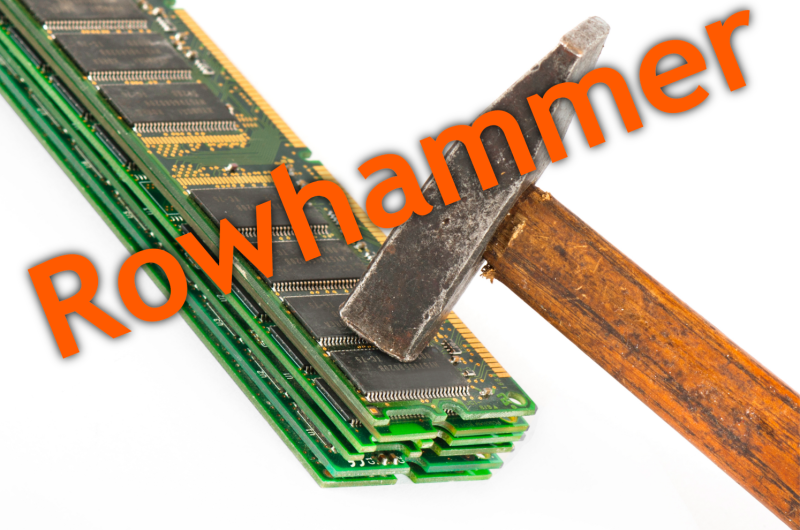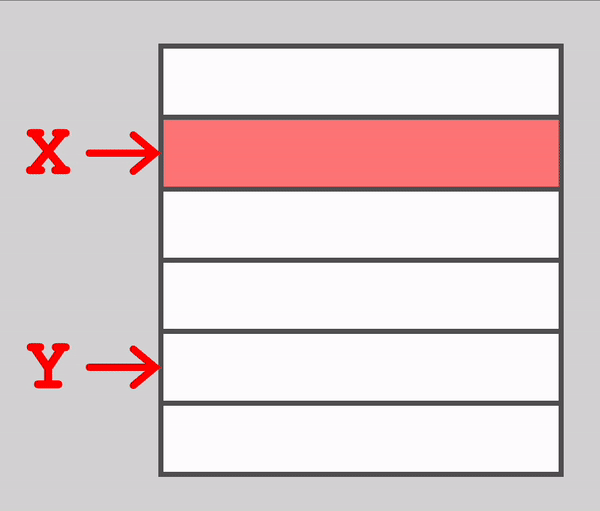Ataberk's Research
I am interested in the intersection between computer architecture and memory system reliability and performance, including:
- Understanding the various properties of read disturbance in DRAM under different conditions and access patterns.
- Developing effective, high-performance, low-cost solutions that comprehensively mitigate read disturbance in DRAM.
- Uncovering new computational functionality in real DRAM chips to enable low-cost processing-in-memory architectures.
Read Disturbance in DRAM

Illustration yanked from https://hackaday.com/2015/03/13/creative-dram-abuse-with-rowhammer
DRAM is the dominant technology used for main memory in almost all computing systems due to its low latency and low cost per bit. Modern DRAM chips suffer from read disturbance. RowHammer and RowPress are two widespread DRAM read disturbance phenomena. Repeatedly accessing (i.e., hammering) a row or keeping a row open for a very long time (i.e., pressing) induces bitflips in physically nearby DRAM rows.

O. Mutlu, A. Olgun, and A. G. Yağlıkcı, “Fundamentally Understanding and Solving RowHammer,” in ASP-DAC, 2023.
Understanding DRAM Read Disturbance
There is still a lot we do not know about RowHammer (or DRAM read disturbance, in general), its properties/sensitivities, and the manifestations of such properties in cutting-edge and future DRAM chips. It is critical to fundamentally understand the various properties of RowHammer under different conditions and access patterns, in order to develop fully-secure and efficient solutions.
Here is a list of my recent work that furthered the understanding of DRAM read disturbance via experimental analyses on real DRAM chips:
- A. Olgun et al., “An Experimental Analysis of RowHammer in HBM2 DRAM Chips,” in DSN Disrupt, 2023.
- A. Olgun et al., “DRAM Bender: An Extensible and Versatile FPGA-based Infrastructure to Easily Test State-of-the-art DRAM Chips,” IEEE TCAD, 2023.
- H. Luo et al., “RowPress: Amplifying Read Disturbance in Modern DRAM Chips,” in ISCA, 2023.
- A. G. Yağlıkçı et al., “Understanding RowHammer Under Reduced Wordline Voltage: An Experimental Study Using Real DRAM Devices,” in DSN, 2022.
- (missing reference)
Solving DRAM Read Disturbance
As the RowHammer vulnerability (or DRAM read disturbance, in general) worsens with DRAM technology scaling, developing extremely efficient and fully secure RowHammer solutions becomes increasingly important. Even though many prior works develop various software- and hardware- level RowHammer solutions, these solutions incur non-negligible and increasingly more significant system performance, energy, and hardware area overheads as RowHammer vulnerability worsens.
Here is a list of my recent work that developed efficient system-level techniques to prevent read disturbance bitflips:
- A. Olgun et al., “ABACuS: All-Bank Activation Counters for Scalable and Low Overhead RowHammer Mitigation,” in USENIX Security, 2024.
- (missing reference)
- A. G. Yağlikçi et al., “Blockhammer: Preventing RowHammer at Low Cost by Blacklisting Rapidly-Accessed DRAM Rows,” in HPCA, 2021.
Recorded Research Paper Talks
HBM2 RowHammer (Link to Paper PDF)
An Experimental Analysis of RowHammer in HBM2 DRAM Chips
2023: Conference Talk, ~24 minutes
PiDRAM (Link to Paper PDF)
An FPGA-Based Framework for End-To-End Evaluation of Processing-In-DRAM Techniques
2023: Conference Talk, ~26 minutes
MetaSys (Link to Paper PDF)
Cross-Layer Optimization with a Practical Open-source Metadata Management System
2022: SAFARI Live Seminar, ~1 hour 26 minutes
QUAC-TRNG (Link to Paper PDF)
High-Throughput True Random Number Generation Using Quadruple Row Activation in Commodity DRAM Chips
2021: SAFARI Live Seminar, ~1 hour 26 minutes
This is the most detailed presentation of QUAC-TRNG.
2021: Conference Talk, ~25 minutes
2021: MSc Thesis Defense (in Turkish), ~40 minutes